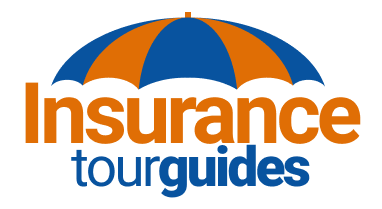For many people, working from anywhere sounds like a dream. Imagine logging into your laptop from a beachside café in Bali, a mountain cabin in Switzerland, or a co-working space in Mexico City. This is the lifestyle of digital nomads—people who earn their living remotely while traveling the world.
But while digital nomads often think about visas, Wi-Fi speeds, and the best co-living spaces, there’s one topic that often gets overlooked: insurance. Living abroad comes with unique risks, and without the right coverage, a single emergency could derail your plans and your finances.
If you’re considering the nomadic lifestyle—or already living it—understanding your insurance options is one of the smartest steps you can take.
Why Insurance Matters for Digital Nomads
Traveling long-term is very different from taking a two-week vacation. Standard travel insurance often ends when your trip does, and your U.S. health insurance may not cover you overseas. Meanwhile, you’re exposed to all the same risks—illness, accidents, theft, and liability—plus a few extras like medical evacuation or lost work equipment.
Insurance matters for digital nomads because it provides:
-
Health Protection: Access to medical care abroad without massive out-of-pocket bills.
-
Financial Security: Reimbursement for unexpected expenses, from canceled flights to stolen laptops.
-
Peace of Mind: The freedom to focus on your adventures and work instead of worrying about “what if.”
The Big Three: Types of Insurance Digital Nomads Need
Not every nomad’s insurance needs will look the same, but most should consider at least three categories: health insurance, travel insurance, and liability coverage.
International Health Insurance
Traditional U.S. health plans often stop at the border. Even if they cover emergencies abroad, they usually won’t pay for routine care or long-term treatment outside the U.S. That’s where international health insurance comes in.
What It Covers
-
Doctor visits and hospital stays abroad
-
Emergency and routine care
-
Some plans include maternity care, dental, or vision
-
Access to private hospitals and English-speaking doctors
Why It’s Important
In many countries, quality healthcare is available—but without insurance, you’ll pay out of pocket. Even though medical costs abroad are often lower than in the U.S., a hospital stay or surgery could still wipe out your savings.
What to Look For
-
Worldwide coverage, not just specific regions
-
Emergency evacuation and repatriation
-
Flexibility to renew as long as you stay abroad
-
Exclusions (pre-existing conditions, risky activities, etc.)
Providers like Cigna Global, Allianz, and IMG are well-known for offering international health plans.
Travel Insurance for Long-Term Trips
Standard travel insurance is built for short vacations, not months or years abroad. But digital nomads still need coverage for things like flights, baggage, and emergencies.
What It Covers
-
Trip cancellations or interruptions
-
Lost or delayed luggage
-
Emergency medical care (short-term)
-
Evacuation in case of natural disaster or political unrest
When It’s Useful
Travel insurance is best for covering the non-medical headaches that come with constant movement. If your flight is canceled, your bags get lost, or you need to cut your trip short, it can save you thousands.
Some nomads combine travel insurance with international health coverage for maximum protection.
Personal Liability Insurance
This is the most overlooked type of coverage for digital nomads, but it can be a lifesaver. Liability insurance protects you if you accidentally cause injury to someone else or damage property while abroad.
Examples
-
You bump into someone while cycling, and they’re injured.
-
You accidentally damage a rented apartment or co-living space.
-
Your child (if traveling as a family) causes an accident.
In some countries, lawsuits and claims can be expensive. Having liability coverage ensures you’re not left paying huge sums for an accident.
Some international health or travel policies include liability coverage, but you can also purchase it separately.
Additional Types of Coverage to Consider
Depending on your lifestyle, you may also want to explore:
-
Equipment Insurance: Covers laptops, cameras, and other work tools. Essential for freelancers and creatives.
-
Life Insurance: Provides protection for your family back home if something happens to you.
-
Disability Insurance: Protects your income if you’re unable to work due to illness or injury.
-
Repatriation Coverage: Pays for transportation back home in case of serious illness or death.
How to Choose the Right Plan
With so many options, finding the right insurance can feel overwhelming. Here’s how to narrow it down:
1. Assess Your Travel Style
-
Will you be moving countries every month or staying put for a year?
-
Do you plan to return to the U.S. regularly?
2. Consider Your Budget
-
International health insurance can be pricier than travel insurance, but it offers more comprehensive coverage.
-
Balance what you can afford with the risks you’re willing to take.
3. Check Provider Networks
-
Some plans have stronger networks in Europe than in Asia, for example. Make sure your destinations are covered.
4. Look for Flexibility
-
As a nomad, your plans may change. Choose a policy that allows you to extend, cancel, or update your coverage easily.
5. Read the Fine Print
-
Pay attention to exclusions, limits, and deductibles.
-
Make sure pre-existing conditions are addressed.
Common Mistakes Nomads Make
Many digital nomads skip or delay getting insurance, thinking they won’t need it. But accidents happen everywhere. Common mistakes include:
-
Relying only on credit card travel insurance, which usually has short time limits.
-
Assuming U.S. health insurance will cover everything abroad.
-
Forgetting about liability risks in shared living spaces.
-
Buying the cheapest plan without checking exclusions.
The Role of Employers and Freelance Platforms
Some remote workers are lucky enough to have employer-provided international health insurance. If you work for a U.S.-based company, check whether your benefits extend abroad.
Freelancers working through platforms like Upwork or Fiverr may also have access to discounted insurance options. It’s worth exploring these before buying a policy on your own.
Why Insurance Helps You Travel Freely
The biggest benefit of having the right coverage is freedom. Instead of worrying about “what if,” you can focus on the adventure of living abroad. Insurance won’t prevent bad things from happening, but it ensures they don’t become financial disasters.
For digital nomads, peace of mind is just as important as Wi-Fi speed or finding the perfect workspace.
Final Thoughts
The digital nomad lifestyle is exciting, flexible, and full of opportunity. But it also comes with risks that most short-term travelers never face. By investing in the right combination of international health, travel, and liability insurance, you can protect your health, your finances, and your freedom.
At the end of the day, insurance isn’t just about paying for emergencies—it’s about making sure your adventures can continue without interruption. With the right plan in place, you’ll have the confidence to explore the world while keeping your future secure.

